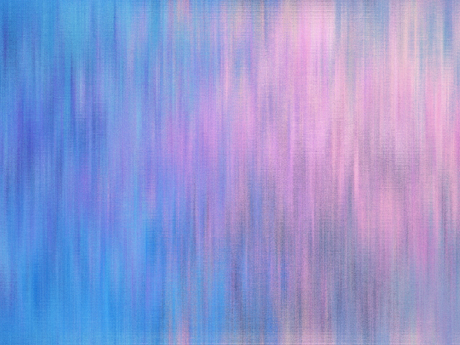Old School
On Anonymous

Poetry came into my life before I could hold it in my mind, or turn it over with a thought or a prayer. Poetry came into my life as sound, and that sound was orchestrated by a children's poet, also an anthologist, who served as Poet-in-the-Schools for my district: Myra Cohn Livingston.
Thumbing through the pages of Myra's own anthologies, or reviewing her "mixtapes" (that extraordinary collection of poems she recited by memory in the hour of class I looked forward to most each week) I find Keats, Browning, Christina Rossetti, Lorca, Frost, Yeats, Dickinson, Blake, Li Po.
These words return not to my eyes but somewhere in the back of my throat, and even my arms and chest, I know them so verbally and from so long ago...
And several of my favorite poems have one thing in common; they were written by a poetry spirit I imagined was immortal, spoke multiple languages, and really got around:
His or her name was Anonymous.
It is embarrassing to admit what my teacher didn't realize. There was a time (I was 7, I was 8) when I thought that one brilliant person with a good ear had drunk up the voice of the shepherd, of the 9th Century Japanese woman, the drunkard, the sad one, the cad....
Here (to my child's imagining) is a shepherd out in a storm wishing for the warmth back:
Western wind, when wilt thou blow,
The small rain down can rain?
Christ, if my love were in my arms
And I in my bed again!
16th Century
I loved this little poem for speaking to nature ("Western wind, when wilt thou blow"). I'm still not sure what exactly the poet is asking of the wind, whether he is urging it on, urging it to storm and storm, to express his inner loss and longing for the love no longer in his arms, or begging the storm away, so he can return home from working the fields in a rainstorm, where presumably his love might be waiting in warm bed for him. Or whether he is just in a weariness and a wistfulness whose circumstances don't really matter.
I loved the coarse usage of "Christ", and that moment each time I'd hear the poem when I would think the speaker was calling out to the Lord for help only to realize a moment too late that the speaker is simply cursing, so wet and godless and wistful. I loved writing the story one way in my mind, only to rewrite it another way later.
Like all children, I wanted to "know" or to seem to know. So I didn't ask. I guessed. I hoped. I covered up. And I found out the amount I knew, and all the "not knowing" too were enough. Were a form of plenty.
From reading poetry written in older forms of the language, poems whose sounds were swinging from vines, just beyond my ability to name and explicate meaning, I "got into practice" appreciating the speech act of the poem as something electron-excited, dangling and dazzled, beyond the literal. Something more of the sphere of charm and magic.
And I also wrote a little story. An untestable, uncheckable, unresolved story for each Anonymous piece.
I particularly enjoyed creating these little stories for ancient fragment poems from exotic places and languages, whether by anonymous, or by someone too old and long ago to picture the "writer" as more than a myth. Here is Lady Ise's 9th or 10th Century lament on a love affair that hit the rumor-mill at court:
Since "the pillow knows all"
we slept without a pillow.
Still my reputation
reaches to the skies
like a dust storm.
Translated by Kenneth Rexroth
The psychoanalytic tradition casts a light on contemporary poetry--a nourishing light and a life-finding one. But it presupposes that the poem is also a lens through which we can see and focus on the poet.
Part of what I loved about my first favorite poems are a set of traits that stand alongside a great deal of pre-19th century poetry, aka pre-Freudian literature. Poets such as William Blake ("Tiger, tiger burning bright") and Andrew Wyett's "Whoso list to hunt, I know where is a hind") sound good. Poems such as the shepherd's above, or the anonymous Geisha songs translated by Kenneth Rexroth in Women Poets of Japan, extract story to their un-I. They come to us like fragments (Sappho, Catullus, the Geishas) that imply more than a fleshed narrative could ever pen.
These poems are smarter than the conscious mind, older than a single bone house, and have still on their wet lips more ways of saying.
Anonymous works have to stand, poem by poem, claiming their space with their feet in the grit and stream of Language.
And so, they are to me a river. An origin. A place of wind and voice. Let's stand knee deep in it. And keep our eyes peeled for fish.


